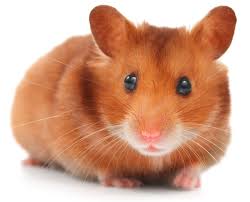 My novel in progress is set here in Appalachia a century ago, when dialect was strong. Which raises a constant writer’s dilemma: verisimilitude and historical accuracy versus out-of-area comprehension. One doesn’t want to replicate my grandfather/hamster confusion.
My novel in progress is set here in Appalachia a century ago, when dialect was strong. Which raises a constant writer’s dilemma: verisimilitude and historical accuracy versus out-of-area comprehension. One doesn’t want to replicate my grandfather/hamster confusion.
I grew up in the Northeast and had never lived in the South when I moved to Knoxville, TN and got work teaching college. The class was in developmental reading and my task, among others, was to develop study, academic discipline, and time management skills. So in the first week, when a young woman stayed after to say she couldn’t do the assignment because her “pepaw” was sick and they were really close, I was ready.
Now, locally, “pepaw” or “papaw” is grandfather, but I didn’t know that. I heard “paw” and thought, well, some pet with little, wee paws. Like a hamster, maybe. I’d had one; we were sort of close, but I did my homework anyway. This girl needs to buck up. It didn’t help that I’d just moved from Italy, where the state pays university tuition with the message: “We admitted you, but we don’t have to keep you, and we sure don’t have to make nice.”
Then there was Memaw,* also troubled. A little hamster family with cutsie-pie names? So the conversation lurched along, me getting annoyed by the litany of woe, worried that if word got out that a sick hamster gets you out of homework, the semester was doomed. She thinking I’m an ice queen, or worse.
An aunt was coming in . . . diabetes, and I’m still thinking: Rodents recognize aunts? They get diabetes? Maybe it was at “intensive care” and “my dad’s really broken up” that I considered an alternate construct: “Ashley, your pepaw—”
“He’s on my dad’s side.”
Scrambling a bit: “Your . . . grandfather’s still in the hospital?”
“Yes.” Things went better from there. Pepaw improved; Ashley passed; I learned something.
Writer’s moral: Provide context to avoid confusion.
- Memaw is grandmother, but I’m sure you figured that.

I think writing dialect in historical novels would be most problematic when using words that are now considered politically incorrect and/or offensive. I’ve read books where the author apologizes in the acknowledgments and explains her use of such words.
LikeLike
Yes, that is a problem, and will be in my novel, since I’m dealing with racial issues in the south in 1919. However, it’s also true that readers of historical novels tend to be more than usually educated and aware that as culture changes, language changes. Also, I think you can be careful who says the offensive words, and how that relates to the dominate point of view in the novel.
LikeLike